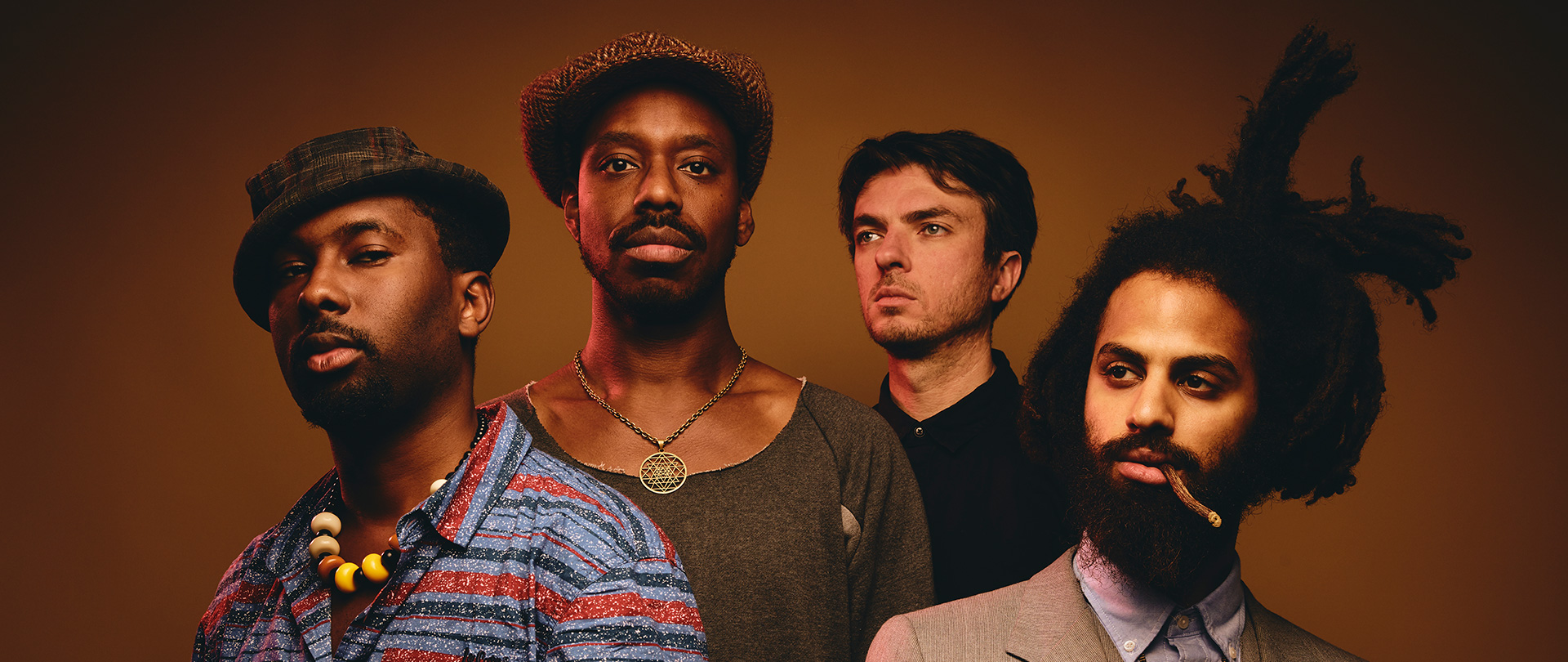Over the last half decade, Shabaka Hutchings has established himself as a central figure in the London jazz scene. His band, Sons of Kemet, boasts a somewhat unorthodox lineup—saxophone, tuba, and two drummers—but for Hutchings it’s a natural arrangement. “I’ve never seen it as unconventional,” he says of the group’s instrumentation. “It’s just been that I wanted to play with those two drummers. In some ways it was split between a desire to play with the two individuals and also a desire to take away the function of the drums as being the thing that provides the rhythm. When you’ve got two drummers they converse with each other. It takes the onus off any one particular drummer to provide the beat, because there’s going to be a forward momentum just from them expressing together.”
show less
Over the last half decade, Shabaka Hutchings has established himself as a central figure in the London jazz scene. His band, Sons of Kemet, boasts a somewhat unorthodox lineup—saxophone, tuba, and two drummers—but for Hutchings it’s a natural arrangement. “I’ve never seen it as unconventional,” he says of the group’s instrumentation. “It’s just been that I wanted to play with those two drummers. In some ways it was split between a desire to play with the two individuals and also a desire to take away the function of the drums as being the thing that provides the rhythm. When you’ve got two drummers they converse with each other. It takes the onus off any one particular drummer to provide the beat, because there’s going to be a forward momentum just from them expressing together.”
read more
show less
Date/Times:
SFJAZZ Center - SF Jazz
19 Upcoming Events
201 Franklin Street, San Francisco, CA 94102
The Best Events
Every Week in Your Inbox
From Our Sponsors
UPCOMING EVENTS
Great suggestion! We'll be in touch.
Event reviewed successfully.








